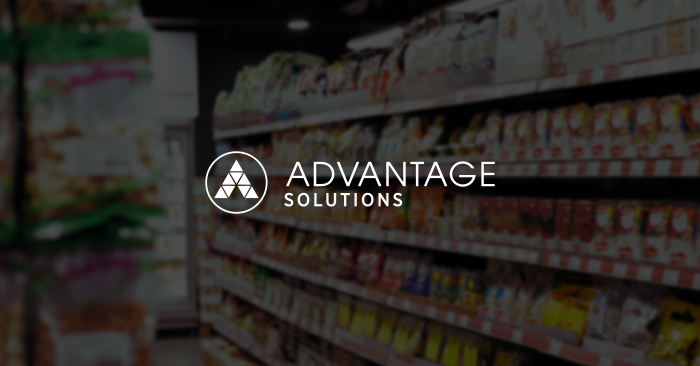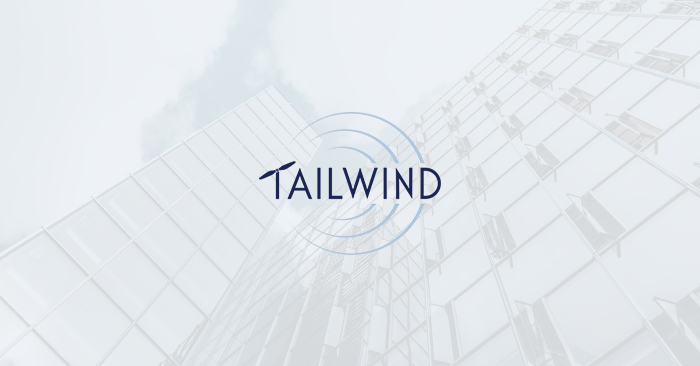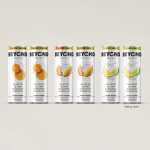SPAC Attack: Hollod to Run Tailwind, Advantage to Merge and Go Public
It’s the summer of special purpose acquisition companies (SPACs). Also known as blank check companies, SPACs have increasingly become appealing for the ability to create category leaders quickly by focusing on scale, and getting capital infusions into brands that need them.
The first step of any SPAC is to hold an initial public offering (IPO) as a means of generating capital to then acquire or merge with existing companies. The initial members of a SPAC generally have expertise in one segment of the industry, and seek out acquisition targets within that sector. Although some SPACs may be formed with a target in mind, this is not disclosed upfront during the IPO process — leading to the moniker “blank check companies.” Once a SPAC goes public, it has two years to find a target or it must dissolve and return the money to its investors and shareholders.
While SPACs can be appealing to investors for allowing them to combine assets resulting in a rapid growth in scale, at the same time, for brands, a SPAC can offer the opportunity to go public — and see a much needed cash infusion — without the rigorous process that accompanies a traditional IPO.

Advantage Solutions to Merge and Go Public
Today outsourced sales and marketing organization Advantage Solutions announced it would merge with Conyers Park II Acquisition Corp, a publicly traded SPAC run by CPG veterans. At the deal’s close, which is expected to occur in late October, Advantage will have a value of $5.2 billion, or 10.1 times its 2021 adjusted EBITDA of $515 million.
Meanwhile, Advantage also withdrew its registration for its own IPO, which it had initially filed for in March 2017. With a goal to “focus on the consumer sector and consumer-related businesses,” Conyers Park II underwent its IPO in July 2019.
The move comes after Advantage has run as a privately held business for over 30 years. In a release, the company wrote that the merger would give the business “greater financial flexibility.”
Financing for the transaction includes $700 million of common stock private placement at $10 per share, including $200 million from Advantage existing investors such as CVC Fund VI, Green Equity Advisors and Bran Capital Private Equity. An additional $500 million of common stock will come from existing Conyers Park investors and new investors, while Conyers Park will also provide $450 million in cash from the proceeds of its initial IPO. Together the capital will go towards refinancing existing debt at Advantage in order to best position the company for future growth.
Current Advantage CEO Tanya Domier, will remain in her role, alongside the existing management team. Jim Kilts, director at Conyers Park, will become chairman. Kilts — the former CEO of 7-Eleven — said in a release that he felt confident in the existing management team and that Conyers Park was attracted to Advantage’s breadth of expertise. Advantage’s roster includes agencies across the sales and marketing spectrum including Daymon, Advantage Sales, Beekeeper Marketing, Quiverr, AMP Agency, Hatch Design, and Sage Tree Online and Retail Sales.
“Advantage’s clear leadership position in the mission-critical sales and marketing industry, together with unmatched scale and capabilities and a management team of the highest quality, make it an outstanding business,” he said. “The company operates in a very large and stable end market and offers essential services and a compelling value proposition of driving sales for its clients and customers while also saving them money.”
Conyers Park has a history of success with this model, completing the IPO for Conyers Park I in July 2016. The proceeds of that offering were used to merge with Atkins Nutritionals in July 2017, forming the Simply Good Foods Company, a maker of nutritional snacks and drinks. Simply Good, which acquired Quest Nutrition last year, trades on the NASDAQ under the symbol SMPL and currently sells at $22.88 a share.

Hollod Teams with Casper Founder for Tailwind
Last week SPAC Tailwind Acquisition Corp raised $300 million through an initial public offering. The blank check company is a partnership between venture capitalist Chris Hollod, who has invested in brands such as Recess, Dirty Lemon, Magic Spoon, Mud/Wtr, and Blue Bottle Coffee through his firm Hollod Holdings, and Philip Krim, the founder and CEO of online mattress brand Casper.
Tailwind sold 30,000,000 units at a price of $10.00 per unit. The company’s goal, a registration statement filed with the SEC states, will be to acquire companies in the “technology and direct-to-consumer (D2C) sectors.” Key focus areas will include health and wellness, agriculture and food technology, telehealth, eSports and digital gaming/betting, education, financial and insurance technology, real estate technology, space technology and enterprise software companies.
Target companies Tailwind will seek out will have enterprise value of roughly $750 million to $2 billion, and will ideally be founder-led, late-stage brands that are disrupting large addressable markets through the use of technology. Also key is “consistent organic revenue growth” and an “attractive margin profile,” according to the registration statement.
Tailwind’s advantage, the SEC filing notes, is the company’s expertise in D2C. Krim, Tailwind’s Chairman, the statement notes, has grown Casper’s sales from $15 million in 2014 to over $440 million in 2019 and successfully took the brand public. Hollod, Tailwind’s CEO, was an early investor in Casper and has invested in food and beverage brands. Rounding out the executive team, Matt Eby, the co-founder and Managing Partner of Tengram Capital Partners, will serve as Tailwind’s CFO.
While the company’s board of directors contains technology and investing experts, the board of advisors, which will also assist with sourcing, structuring and executing deals, also pulls from the food and beverage industries. Notable among them are brothers Carter and Courtney Reum, the co-founders and managing partners of M13, a venture firm with investments in Daily Harvest and Thrive Market, and former co-founders of Veev Spirits.
The statement cites D2C and technology companies’ ability to use data to develop business models and address “the significant consumer demand for more personalized experiences” as appealing. These brands, the document continues, have an advantage in controlling the entire consumer experience from start to finish, thus leading to higher lifetime values. However, it notes, most companies lack the “marketing sophistication” required to build a company of this nature, and it’s here where Tailwind can provide assistance and ultimately generate value for shareholders.
“Many companies remain private with no clear timetable to become public. We believe there exists a set of companies that with the right guidance and leadership could and should be public companies,” the document states. This significant imbalance in the number of private companies and capital raised vs public companies is emblematic of a broken IPO market.”
For example, within Tailwind’s “target universe,” from 2015 to June 2020 there were over 1,000 companies that raised $50 million or more, for a total of roughly $200 billion in private capital. Meanwhile, only 100 companies in Tailwind’s target universe went public, generating only $45 million in capital. This disparity has only become even more important as the pandemic has increased consumers’ desire to shop online.
“There are a number of businesses who have seen massive growth due in part to COVID-19 and they will need capital to effectively address the increased demand for their products and services,” the statement says. “We will likely represent an attractive option to many of these companies as an efficient and strategic way to raise capital and reach the public markets quickly.”
















